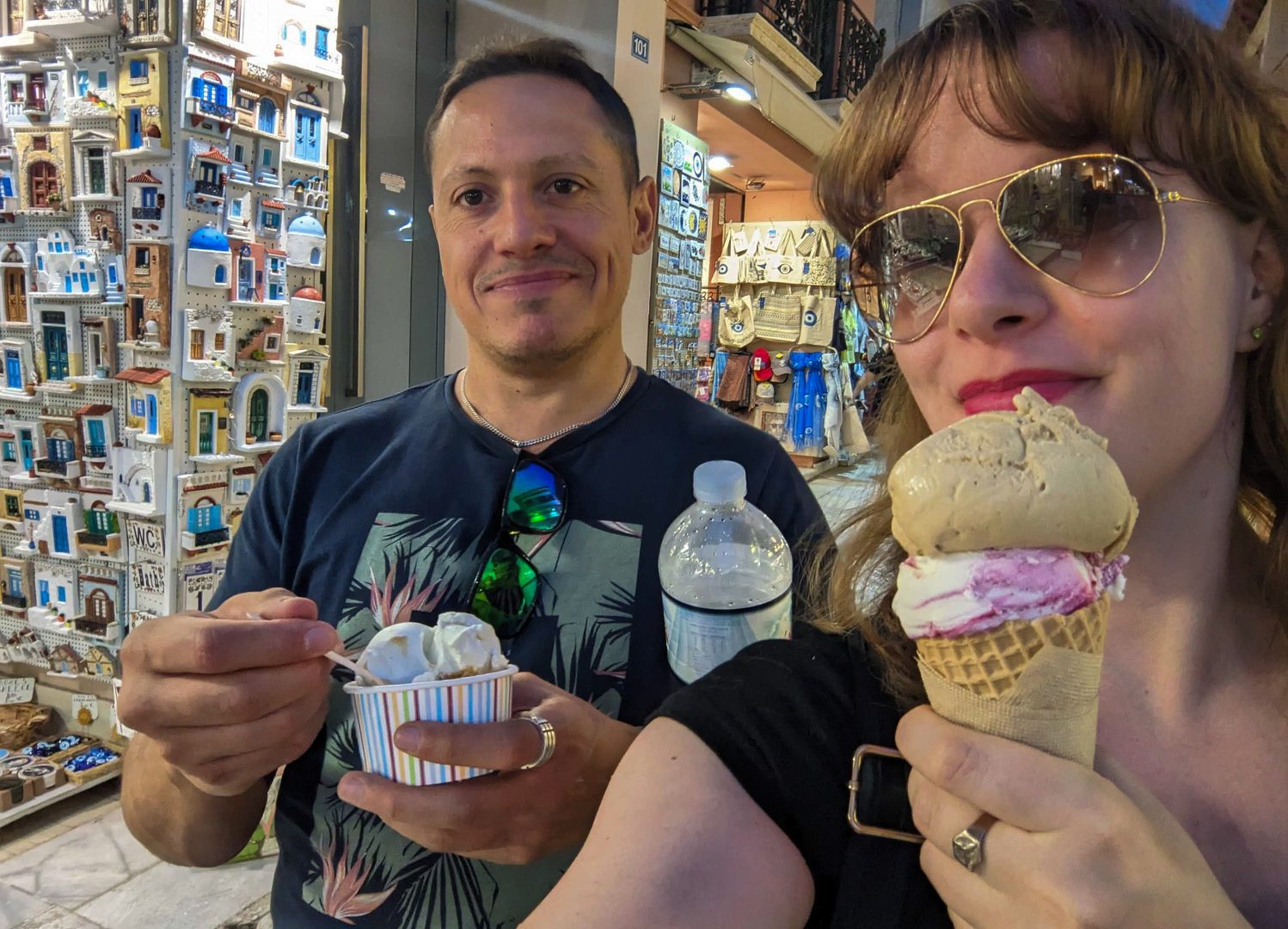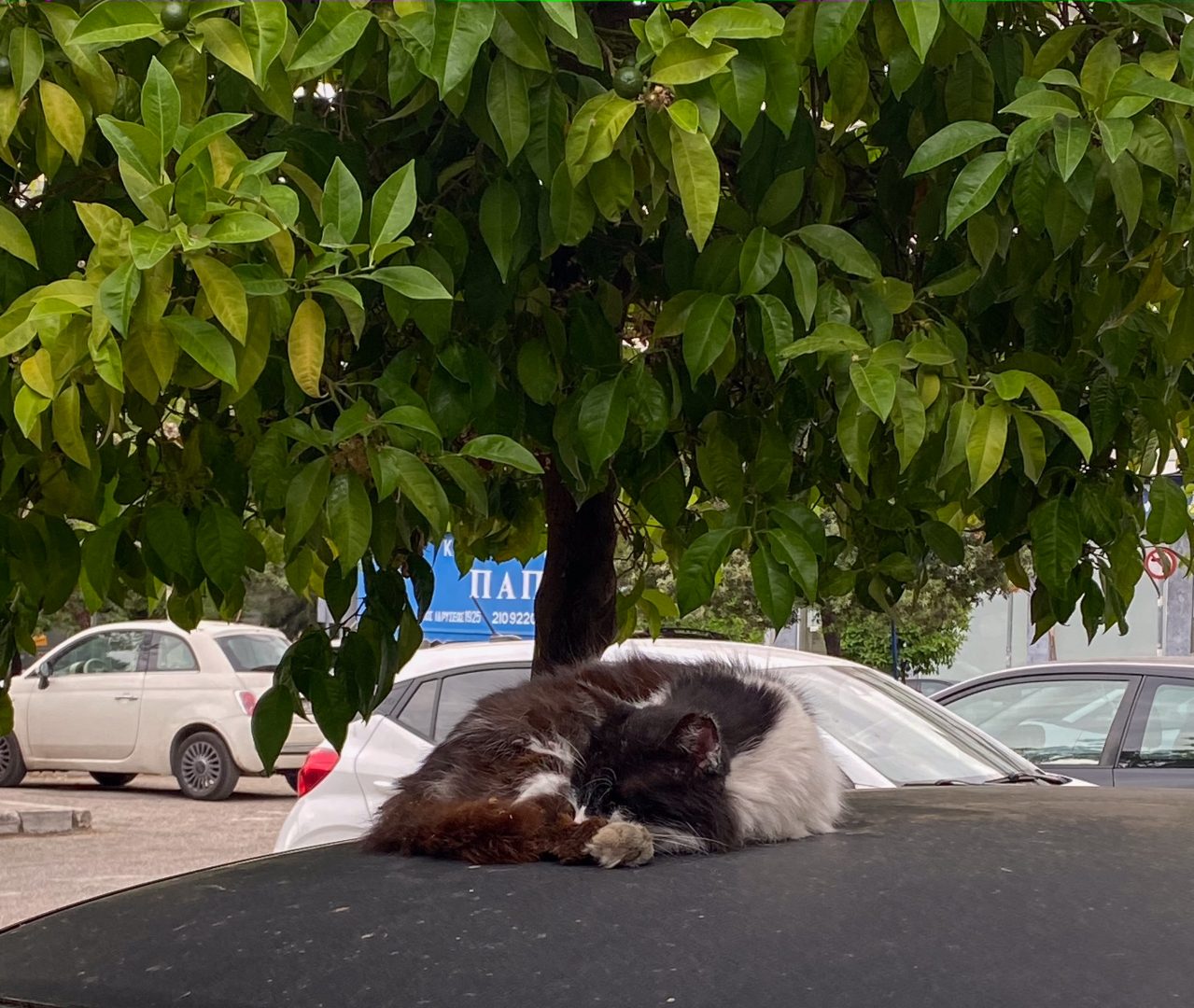Our WordCamp 2023 experience
We’re thrilled to celebrate the journey of WordPress as it reaches its 20-year milestone. WordPress has not only stood the test of time but has thrived as the go-to content management system for millions of websites worldwide. To celebrate the anniversary of WordPress, three of our developers, Raul, Mira, and Marco, attended the WordCamp Europe event in Greece. In this blog post, we explore their experiences and learnings.
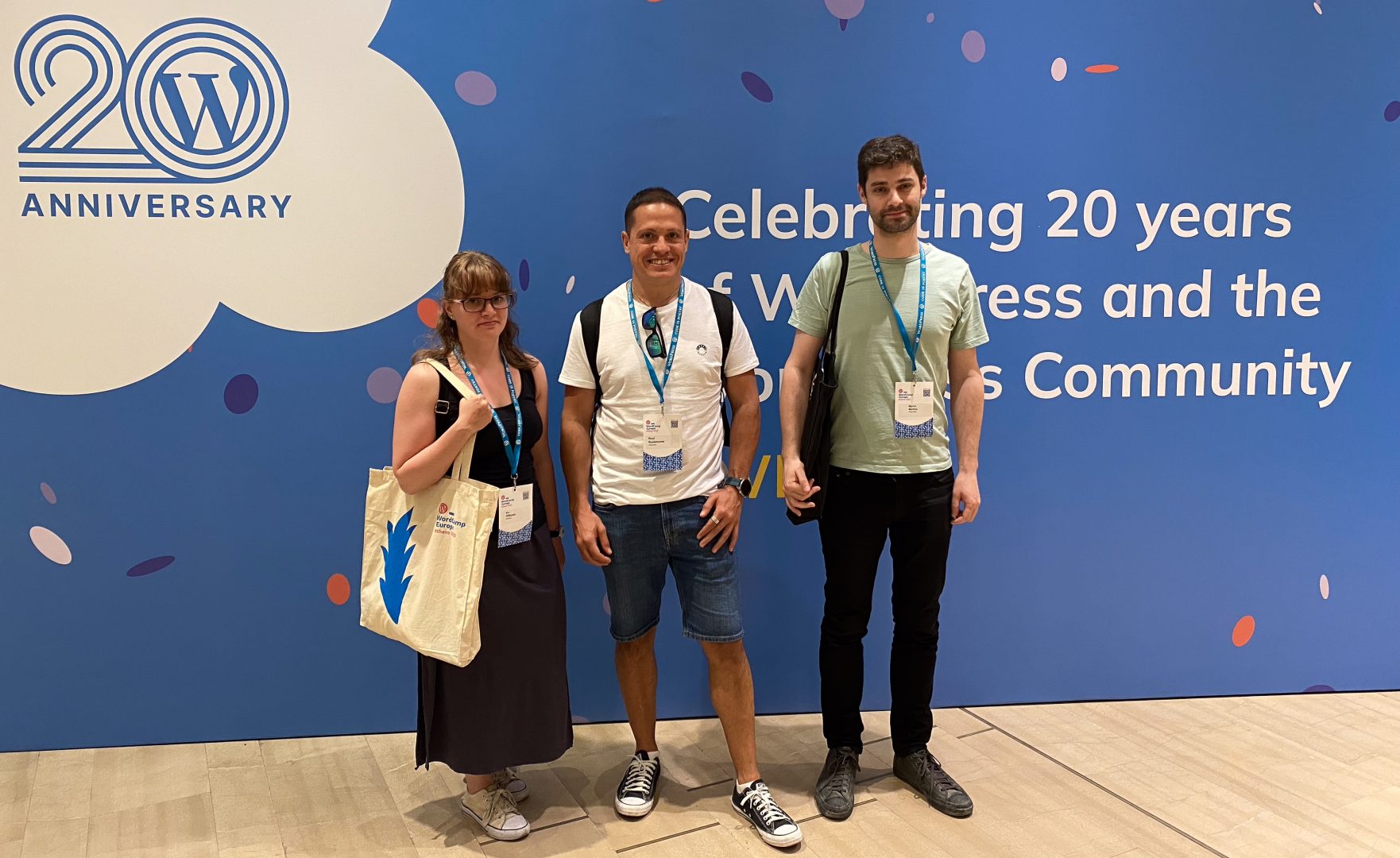
Why we decided to attend
Raul
I recently made the decision to attend the WordCamp event, as I had always been curious about these gatherings. Despite never having the time to participate in such events before, I finally had a window of opportunity with work under control and the chance to also enjoy a holiday. The sunny weather in Greece was a nice change after the cold spring in Finland!
Mira
What I really enjoy about WordPress really is the remarkable sense of community. WordCamps are great learning experiences, but above all, I really enjoy getting to know people and just being part of the community. It’s definitely one of the highlights of these trips for me. This year was no exception, and I made a lot of new connections with other people working in Finnish WordPress agencies.
This was my second WordCamp; last year I attended WordCamp Europe in Porto, Portugal. I volunteered at the conference last year, but this year I decided to just enjoy the full attendee experience. Volunteering at these events is a great way to give something back to the community, as the events would not be possible without organizers and volunteers. If you are interested in volunteering, I heard through the grapevine that WordPress Finland will soon be looking for volunteers 😎

First impressions of Greece
Raul
Upon arrival, I had a 40-minute drive with a taxi driver named Dimitris, who turned out to be a wealth of knowledge about Greece. He explained that it’s a common tradition for families to live together and support one another in the same building. While Dimitris and his wife are at work, his parents take care of their children. Dimitris also explained how Athens becomes less crowded on weekends as millions of workers return to their homes in the surrounding areas or head to the nearby islands. Dimitris was full of energy and enthusiasm as he narrated tales of Greece. According to him, Greece does have pockets of poverty, but it is still a safe country with warm-hearted and friendly people. I can confirm that these observations held true – the warmth and hospitality of Greeks really shone through! I also noticed that many Greeks spoke English well or at least made an effort to communicate in it.
Mira
Athens is a vibrant city with lots of things to see and explore. It can also be quite restless at times. During my visit, I witnessed it firsthand as a protest unfolded on my first night. Walking through the city alongside riot police and encountering broken shop windows was both intriguing and unsettling. Surprisingly, most locals and tourists seemed unaffected, simply carrying on with their daily lives. Seeing so many police officers everywhere with full gear made me feel a little uneasy at times, but I wouldn’t say Athens is a dangerous place to visit by any means. I also visited Aegina for a few days, an island that is a one-hour boat ride away from Athens. The vibe is very different on the islands and in Athens. Aegina was definitely worth a visit with its relaxed atmosphere. As the conference occupied most of my time, I feel like there is still a lot for me to see in Athens and the islands.
Overall, Athens is a great destination. Everyone survived the trip unscathed, except for that one unlucky pickpocketing incident that happened on our last night.

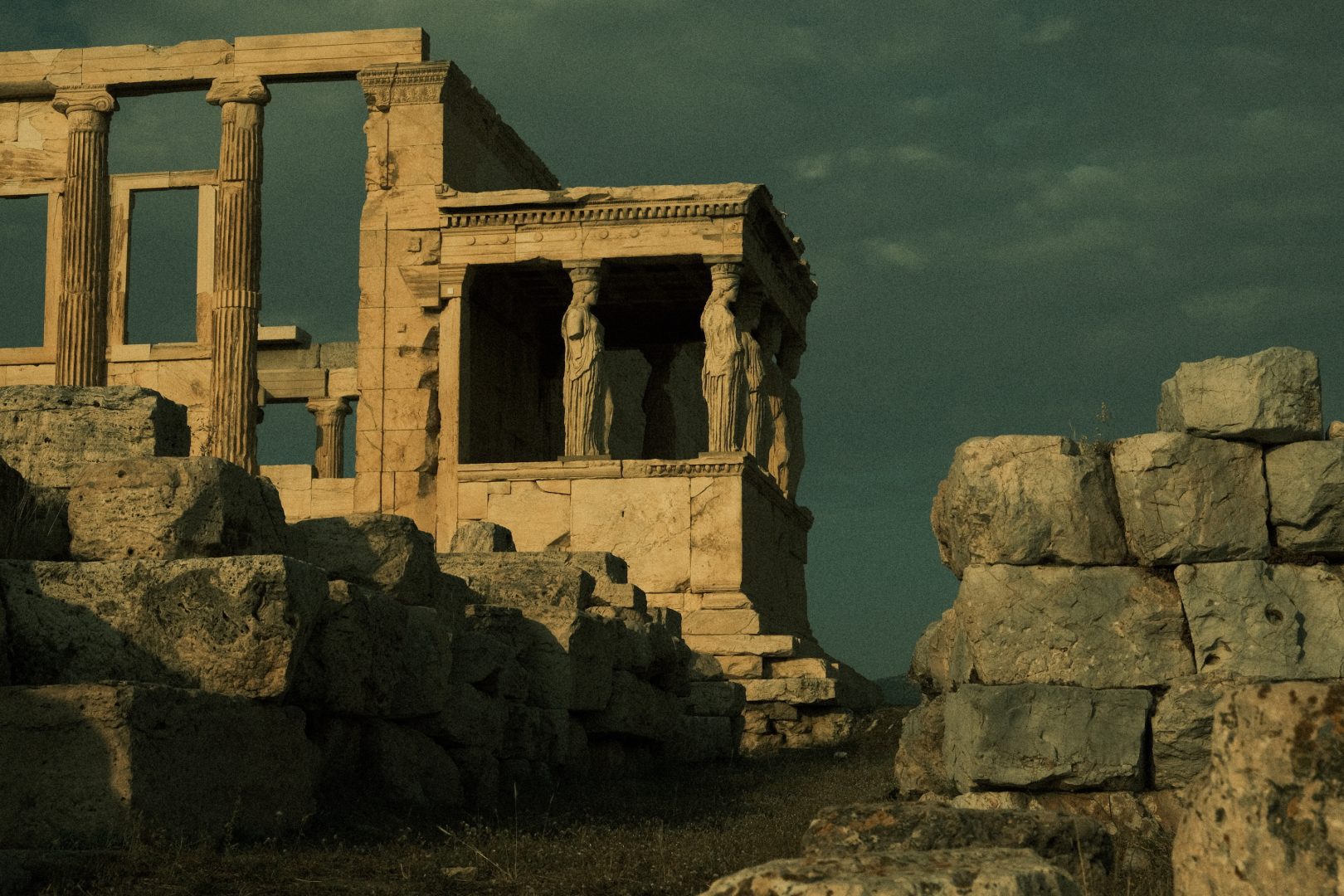
What we learned
Raul
The WordCamp event began two days after my arrival in Greece. Upon my arrival, I introduced myself and received a name badge. Everyone appeared friendly and approachable, making it easy to strike up conversations.
Let’s delve into the event itself. The talks were divided into three different “tracks”, alongside dedicated workshop areas. After attending several talks, I was left with a sense of uncertainty. The industry’s direction and its future landscape seemed very ambiguous. Each speaker had different theories and aspirations for the short-term future, but nothing was definitive. One particularly captivating talk focused on AI, featuring five speakers. Among them, the most engaging presenter in my opinion was Daniel Kanchev, the Director of Product Development at SiteGround. Daniel possessed a clear understanding of the subject matter and communicated it effectively. His approach reflected a balanced perspective without exaggerated claims or unnecessary complexity — a tendency we often see in the IT industry.
Essentially, the prevailing outlook is that in the near future, each server will function as an intelligent component of the internet. These servers will possess their own algorithms that, given a sufficiently large dataset, will be able to produce intelligent insights. Each of these servers will be capable of analyzing visitors, suggesting product changes, automatically populating image alt attributes, generating user-centric reports, and more.
One aspect that left me a little dissatisfied was the sole focus on saving resources and time. Most of the speakers didn’t seem concerned about what the industry could offer to humans in terms of meaningful tasks – their perspective seemed fixated on reducing the need for human involvement, even though this could ultimately result in a large pool of unemployed individuals. Moreover, with an increasing number of people gaining access to new technologies, these people could become competitors, posing a threat to established companies. In the future, hope to see more discussions addressing the future of work and the opportunities it holds for humanity.
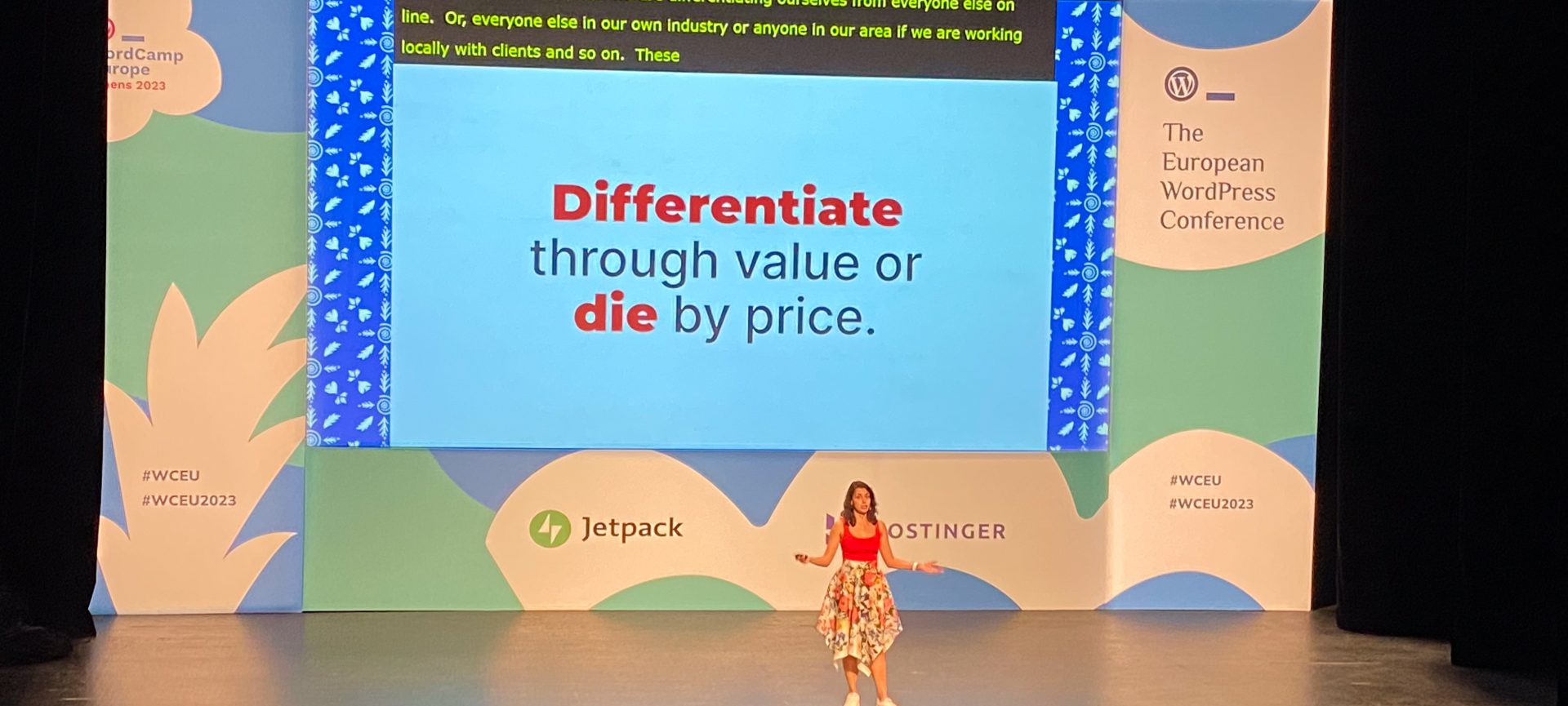
Mira
AI was clearly a very hot topic this year. We learned about translating sites using AI, creating content, and improving accessibility through AI. However, most of these tasks still require a human, as AI does not always understand things like context, and can’t always be trusted. I’ve seen that in my own work too, as I am taking advantage of Github’s Copilot and sometimes ChatGPT. I’ve found these tools very useful, but you really have to take everything they provide with a grain of salt. We are also looking into utilizing AI tools more here at Evermade. As things around AI are moving forward so fast, it’s truly interesting to see where AI and WordPress will be in the not-event-that-distant future and how that will transform our work.
In addition to the regular talks and workshops, the program included a wellness track with beginner-friendly yoga and tai chi classes. I even made it to the morning yoga session on Saturday, but I’m yet to try tai chi. It took some effort to make it to the class by 8 AM, but I’ve got to say that a yoga session is a great way to start a day!
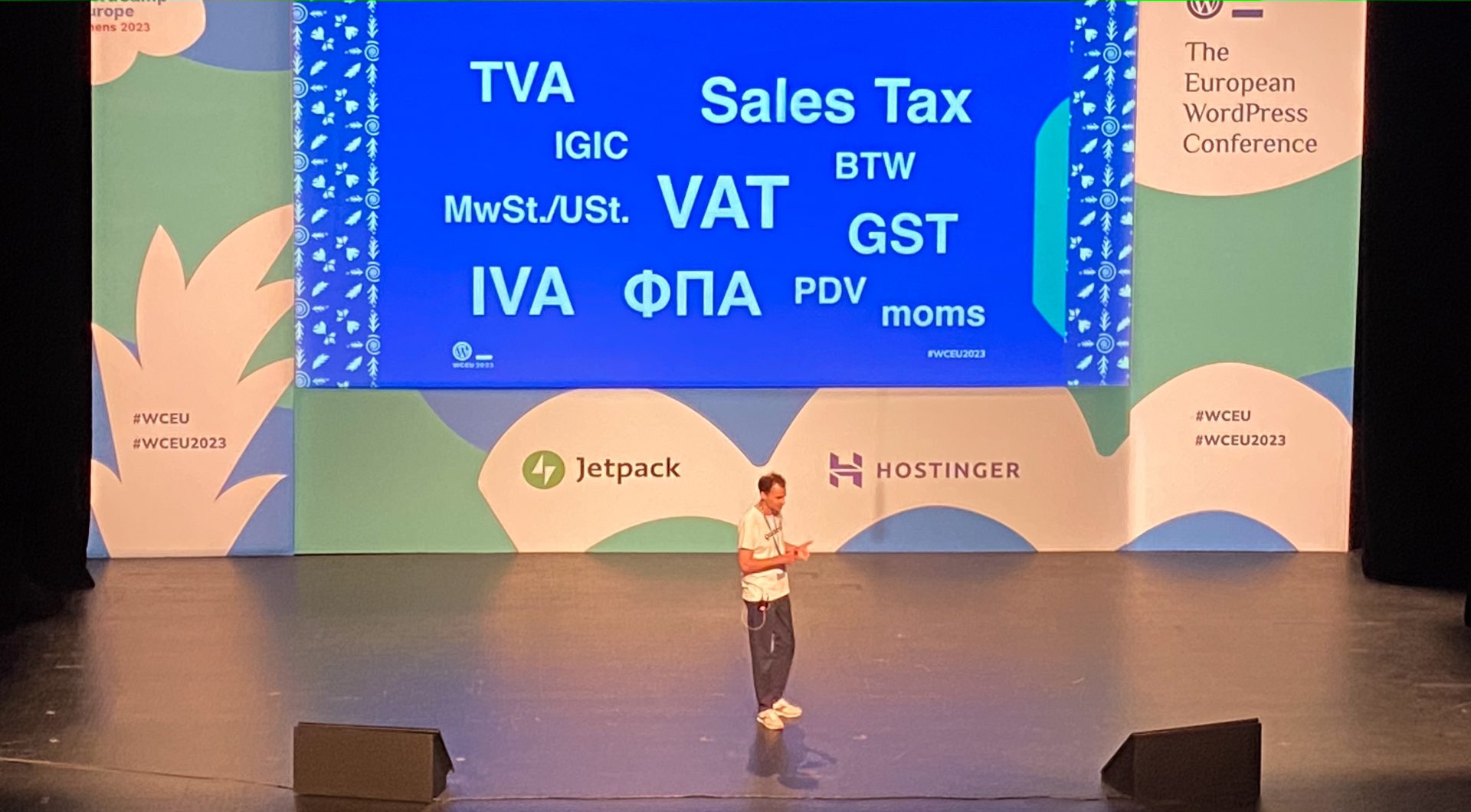
What’s happening with Gutenberg?
Mira
In short, the Gutenberg project roadmap is set to have 4 phases. The first and second phases were about the block editor and the full site editing. These phases brought us a new and solid editing experience with helpful features such as block patterns and block variations.
Currently, the core team is planning phase 3, the collaborative experience. I attended a keynote speech on the topic, and it was truly intriguing to hear what kind of technical challenges it imposes and what their possible solutions are. Creating a reliable solution for real-time collaboration is not an easy task, I can tell you that. I learned a lot about different algorithms, and I’m looking forward to collaborative editing. Multilingual support for the core is phase 4, but that can only happen after the release of the collaborative block editor.
It was interesting to see that the talk schedule featured Gutenberg less prominently than previous events, being replaced by talks about AI. On the other hand, there were many workshops teaching how to build Gutenberg custom blocks and block themes. I think this is a sign that Gutenberg has reached a state of maturity and that the community has become familiar with the editor and needs less convincing and more practical support.
Raul
On the AI front, there seem to be ambitions about AI determining certain block or template configurations based on the client’s needs. The evolution of WordPress seems quite fast and dynamic, but since the competition is fierce, it’s clear that WordPress has to have competitive advantages in order to continue dominating the field.
Participating in the event proved to be very educational, and the WordPress community sure is full of smart people. WordCamps not only foster learning but also facilitate connections with like-minded professionals. I’m eager to attend more gatherings in the future, with my next destination being Tampere, Finland in September. I also want to move beyond just learning and start actively making my own contributions!
P.S. We are sponsoring Finland’s next WordCamp event!
